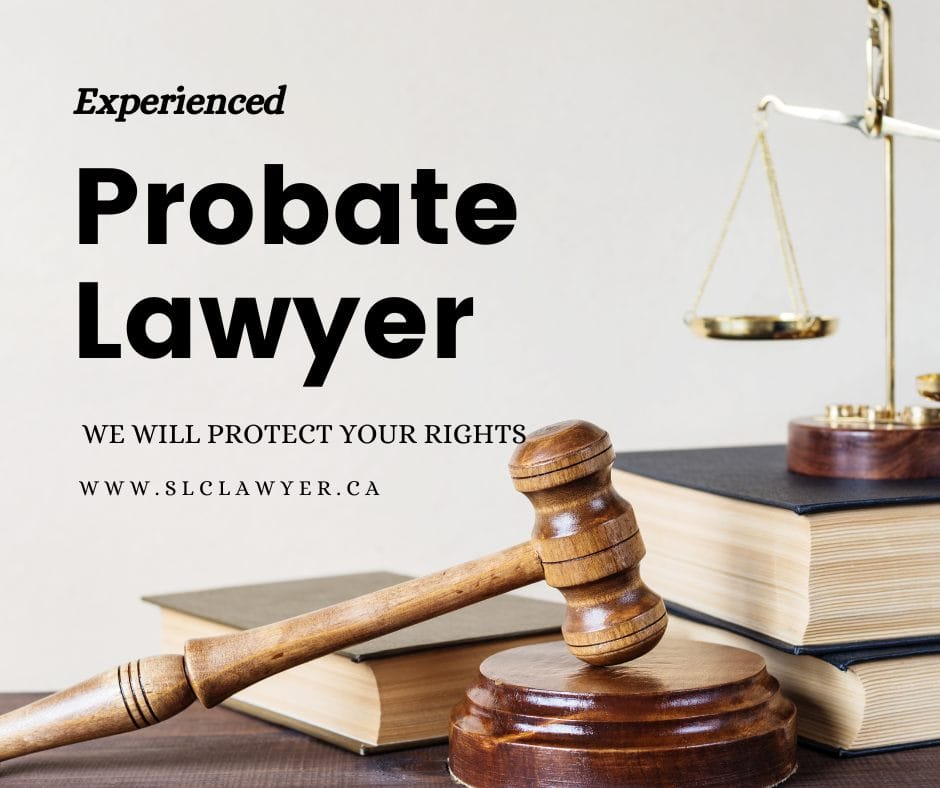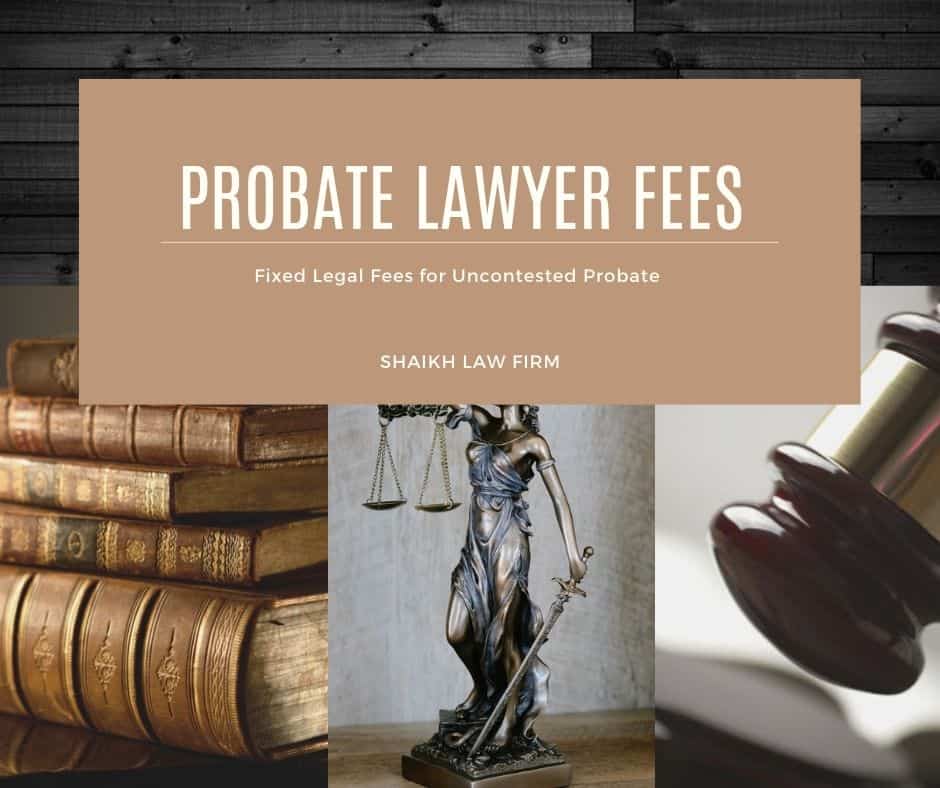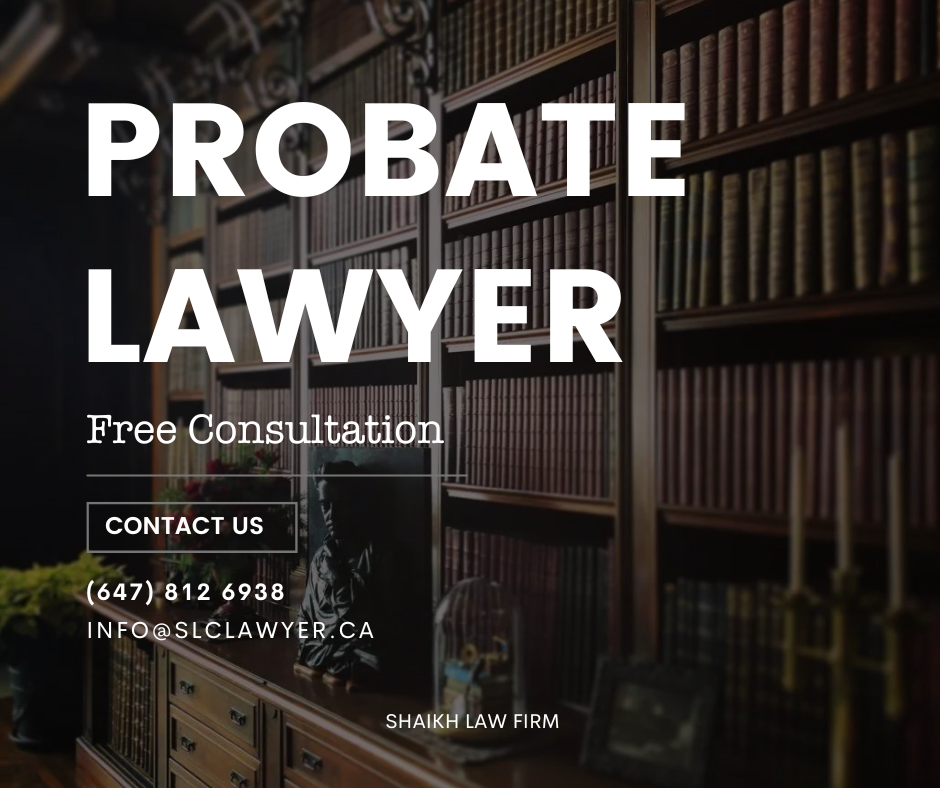Navigating probate and estate administration after losing a loved one can be emotionally and legally challenging. At Shaikh Law Firm, our Probate Lawyer Toronto team provides compassionate, professional guidance to executors and beneficiaries.
With over 30 years of combined experience, our probate and estate lawyers in Toronto assist clients with every aspect of estate administration, from validating wills and distributing assets to settling debts and resolving disputes. We focus on clear communication, efficient service, and the utmost respect for your family’s needs.

At Shaikh Law Firm, we understand that dealing with a loved one’s estate is deeply personal and often complex. That’s why our probate lawyers in Toronto provide tailored advice and full-service support throughout the probate and estate administration process.
Our probate services include:
Interpreting Wills and Trusts: Ensuring the deceased’s wishes are accurately understood and carried out.
Probate Applications: Preparing and filing probate applications—whether a will exists or not.
Certificate of Appointment of Estate Trustee: Handling both “with a will” and “without a will” applications.
Estate Trustee Compensation and Passing of Accounts: Assisting executors with reporting and approval of estate finances.
Asset Distribution: Overseeing fair and lawful distribution of estate assets.
Applications for Clearance Certificates: Coordinating with the CRA to fulfill all tax obligations.
Estate Litigation: Representing clients in contested probate matters to achieve timely, fair resolutions.
Executor Services: Acting as professional executors where required to ensure efficient estate management.
Each service is designed to reduce the administrative burden and provide peace of mind during a challenging time. Our Toronto probate lawyers serve clients across the GTA with professionalism and care.

At Shaikh Law, we are dedicated to providing our clients with efficient, high-quality, and cost-effective probate services.
To make the process more convenient, our probate lawyers in Toronto offer secure online video consultations and remote signing appointments. You can manage the legal aspects of probate from the comfort of your home or office, without the need for in-person meetings.
This is just one of the ways we leverage technology to simplify estate administration and enhance our clients’ experience.
Do You Need a Probate Lawyer?
No! You are not legally required to hire a probate lawyer to file a probate application in Ontario or to manage an estate. However, securing expert legal counsel is crucial to ensure the process goes smoothly.
At Shaikh Law Firm, our Probate Lawyer Toronto team can make a significant difference by:
Handling Complex Probate Forms: We stay current with Ontario’s court requirements, reducing errors and delays.
Addressing Court Rejections: We resolve objections efficiently, saving time and stress.
Providing Legal Expertise: We guide you through every legal requirement for a seamless probate process.
Offering Peace of Mind: Letting professionals handle the paperwork allows you to focus on your family.
Avoiding Costly Mistakes: We help executors prevent common errors that can complicate estate administration.
Choosing our Toronto probate lawyers ensures your loved one’s estate is administered with care, accuracy, and respect.

In Ontario, probate costs range from $1,500 to $2,500 for legal fees at our Toronto Law Office. The Estate Administration Tax, also known as Probate Fees, is calculated at 1.5% or $15 per $1,000 of the estate’s value over $50,000. Depending on the complexity of the estate, additional costs may include appraisal and accounting fees.

At our Law Firm we beleive in giving our client’s an oppourtunity to learn more about our expertise and experience before deciding to retain us. We offer 15 minutes free legal advice in Ontario. Call us, email us or use the form below to book your Free consultation with a lawyer.
If you are based out of Ontario, please email us to book your appointment.
(905) 795 7757
info@slclawyer.ca
(905) 795 1271
15 Minutes
City of Toronto & Greater Toronto Area, Ontario
TD Canada Trust Tower, 161 Bay St. 27th Floor, Toronto, ON M5J 2S1
Ph: (905) 795 7757
PH: (647) 812 6938
Fax: (905) 795 1271
E-mail: info@slclawyer.ca
Multiple Meeting Locations

What does a probate lawyer do in Toronto?
A probate lawyer in Toronto, also known as an estate lawyer, provides legal guidance to executors and beneficiaries throughout the probate process. They prepare and file probate applications, manage estate assets, settle debts, and resolve disputes among beneficiaries.
When do you need a probate lawyer in Toronto?
You need a probate lawyer when filing a probate application, handling multiple or complex assets, or resolving disputes between heirs. A lawyer is also crucial if there is no will or if the executor lives outside Ontario.
How much are probate lawyer fees in Ontario?
At Shaikh Law Firm, legal fees range from $1,500 to $2,500 + HST for a simple, uncontested probate application.
What are probate fees in Ontario?
Probate fees (Estate Administration Tax) are:
$0 on the first $50,000 of estate value, and
$15 per $1,000 above $50,000.
These fees are paid from the estate, not by the executor personally.